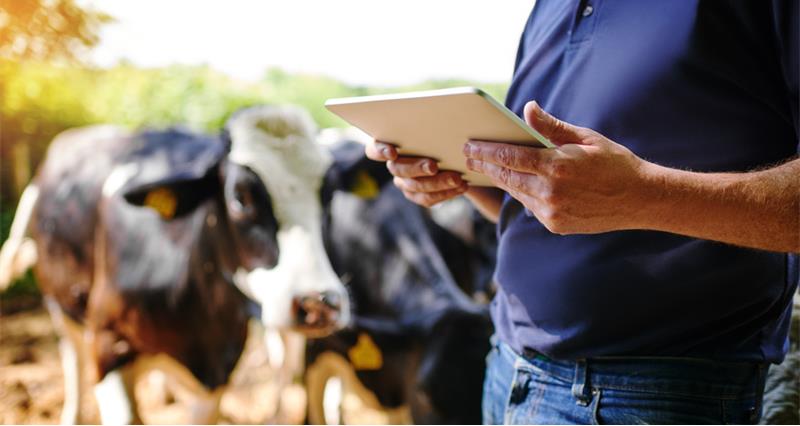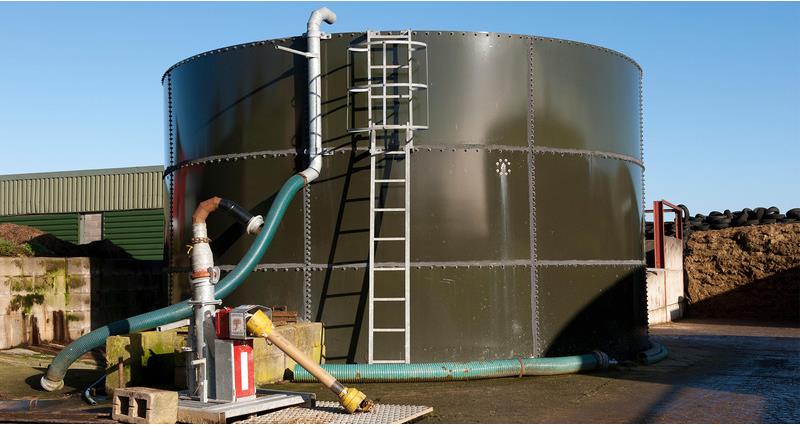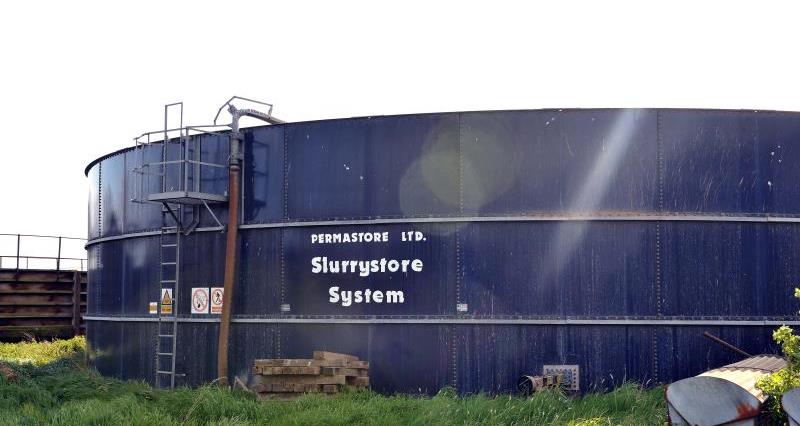On 4 April 2023, Defra released an article highlighting the outcomes of the first round of the Slurry Infrastructure Grant.
Following more than 1200 applications during round 1, Defra announced an increase in the funding for the Slurry Infrastructure Grant, more than doubling the budget for Round 1 from £13.2 million to £33.9 million.
Under this expanded funding pot, 374 projects were invited to submit a full application ahead of the deadline on the 28 June, 2024. More information on planning can be found at: Slurry Infrastructure grant – planning guidance.
Successful applications have been selected based on the assessment of how many storage projects the market could handle without causing unnecessary delays or price inflation.
Round 2 open
Defra has made a further £147m available via the Slurry Infrastructure Grant over the next two rounds. Round 2 opened in November 2023 and round 3 is expected to open in 2024.
The second round builds on round 1; whilst there will be priority areas, we would encourage all to apply, as with round 1 applicants from outside priority areas were successful with their initial applications.
In October, the RPA contacted those still within the round 1 application process to update on the round 2 offer, and how a round 1 application could be amended to incorporate elements of the revised round 2 offer, whilst still keeping to the round 1 timeframes.
Eligible farmers who have been unsuccessful within round 1 are encouraged to submit another application in these subsequent rounds.
For the latest information on round 2, visit: Slurry Infrastructure grant – round 2.
Round 1 applicants were given the opportunity to speak with CSF (Catchment Sensitive Farming) officers. CSF offered a free advice visit to discuss slurry management and ways of reducing pollution across farm.
Applications for Round 1 of the Slurry Infrastructure Grant closed on 31 January 2023.
Decisions on initial outline applications were made at the end of March 2023.
Successful applications for round 1 had to submit full grant applications with associated planning permission by 11.59pm 28 June 2024. Failure to do so will result in application refusal/cancellation.
We've put together a list of answers to questions you've been asking on the scheme. Read: Slurry Infrastructure Grant – your questions answered.
Round 1 reminder
What was the purpose of the grant?
The grant was designed to enable farmers to go beyond the minimum of four months' storage required by the SSAFO (Silage, Slurry and Agricultural Fuel Oil) rules to help meet the Farming Rules for Water and spread slurries to meet crop need, rather than wasting them because of a lack of storage.
- These first-year grants are aimed at covered slurry store construction projects, to enable farmers to get to six months storage capacity based on existing livestock numbers (meaning the typical number of animals you kept on the farm over the last year).
- Defra is grant funding a range of storage types and situations which farmers can choose from a list which needs to meet regulatory and building standards. It will help replace, build new or expand existing slurry stores to provide six months' storage.
- Grant-funded projects will need to maintain six months' storage capacity for all animals on the holding for the duration of the grant funding agreement, irrespective of future livestock numbers. This means you’ll need to make appropriate upgrades to your storage and slurry management if you increase your herd size in the future.
Grant information
As with the other themes under the Farming Investment Fund, there was a two-stage application process.
The first stage was an online 'eligibility checker' (available from 6 December 2022 until 31 January 2023) which if you were found eligible to apply for a grant, formed the initial application, then followed by the second full application process for those with the projects that scored strongest in the eligibility checker.
- The minimum grant you could apply for is £25,000. The maximum grant is £250,000 for each applicant's business. The scheme used standard costs, meaning you got a fixed contribution towards the cost of the items you need and the storage you plan to build. The contributions are based on 50% of the current market costs.
- The grant is paid in arrears. You can make a maximum of 3 claims over the duration of the project. You must have sufficient funds to pay for all items in full before claiming your grant payment. You can use loans, overdrafts and certain other grants, such as the Basic Payment Scheme or agri-environment schemes.
- Capacity increases to allow over 6 months storage is permitted, however, grant funding will be capped at 6 months based on existing livestock numbers. If you choose to exceed this any additional storage requirement will be required to be privately funded.
- Regardless of how much you pay, you will only receive the standard amount listed for that item, unless your actual costs are less than that.
Eligible applicants
All dairy, beef and pig farmers already using a slurry system were able to apply. You can use the grant to:
- replace existing stores that are no longer fit for purpose
- build additional storage, if your current stores are compliant
- expand otherwise compliant storage, for example by adding another ring to a steel tank.
Eligible types of slurry store:
- above-ground steel slurry stores
- precast circular concrete slurry stores
- earth bank lagoons without synthetic liner
- earth bank lagoons with synthetic liner
- stores using precast rectangular concrete panels
- large volume supported slurry bags (over 2,500 cubic metres (m3).
The grant also funded items necessary for the basic functioning of new or expanded slurry stores, such as reception pits and slurry pumps.
You must fit new or expanded stores with an impermeable cover unless you are installing a slurry bag or using acidification. You cannot use this grant for a cover only.
The Slurry Infrastructure grant uses standard costs unless your actual costs are less than that. You will get a fixed contribution towards the cost of the items you need and the storage you plan to build.
More information on what round 1 could pay for can be found on the government's website: GOV.UK | Slurry Infrastructure grant.
Making your application
If you were eligible and your project was prioritised due to its environmental benefits, you will have been invited to make a full application. Invitations were sent to successful applicants in the final two weeks of March 2023.
Applicants then had until 28 June 2024 to submit a full application. This needed to include approved planning permission and a location and design check which will be carried out by the Environment Agency. A financial viability breakdown was also required as part of this stage.
Details of invited projects were also shared with local Catchment Sensitive Farming Advisors, who will get in contact to offer assistance.
If your full application was eligible and you met all the conditions, the RPA will have offered you a grant.
NFU members | We continue to highlight to the government the importance of the Slurry Infrastructure Grant to help farmers store and spread slurry to grow crops and maintain and improve water quality.
— National Farmers' Union (@NFUtweets) August 16, 2023
Find out more👉https://t.co/c1nQROLlMM pic.twitter.com/SlG6kJSgW9
NFU input
We've worked with members and extensively with the Defra team over the past year through a combination of co-design and bilateral engagement, building up a good working relationship to help shape the offer and ensure transparency within the scheme.
We have made a real difference to move the offer on from Defra's initial thinking, such as the ability now for a farmer to choose from a wide range of infrastructure types to suit their farm as well as the grant not being restricted to just new installations. Despite this, some elements of the offer have not been consulted on, such as the actual prioritisation area, payment rates or timelines.
The NFU believes the Slurry Infrastructure grant offer must be extended beyond the current plan of three rounds and funding increased to match demand.
We are continuing to work with Defra and we would welcome any feedback from members. Please send us your views by email at atpfeedback@nfu.org.uk.



